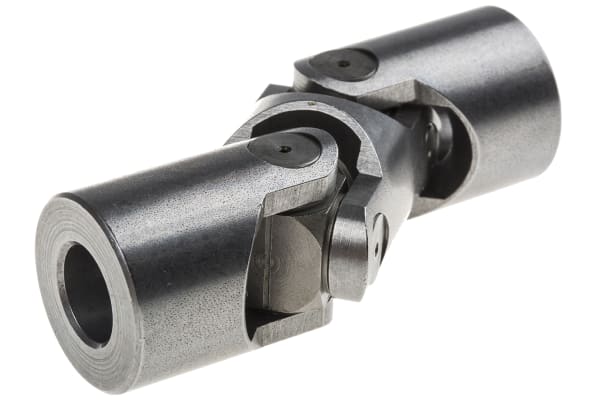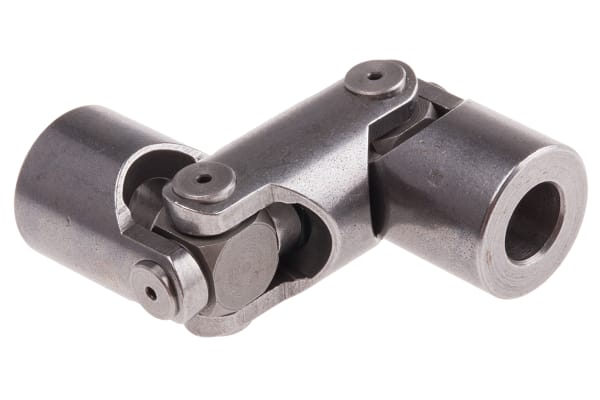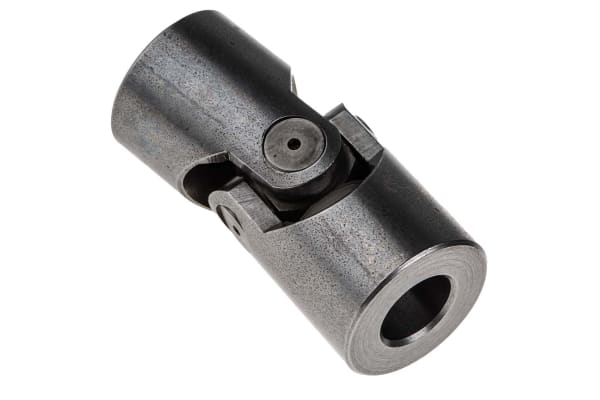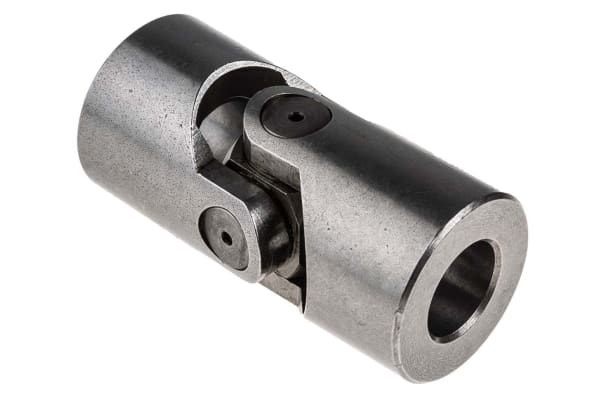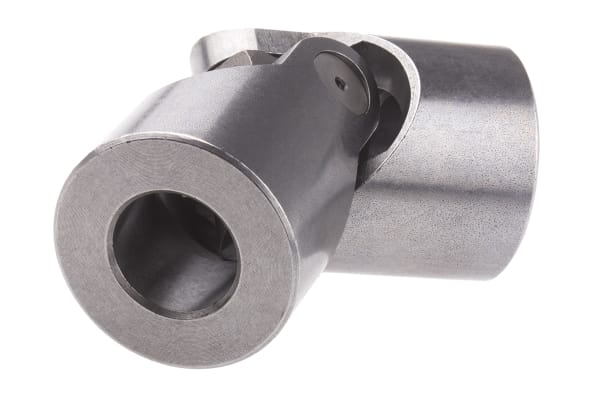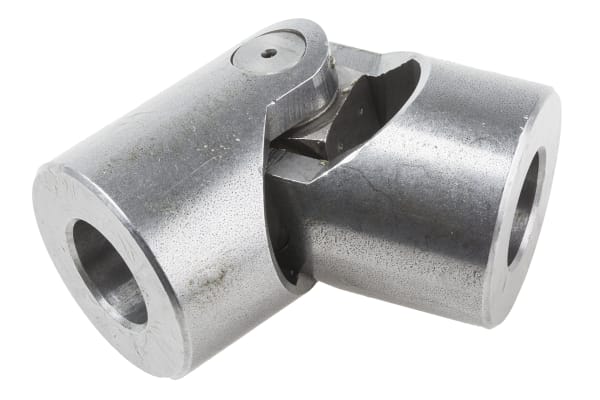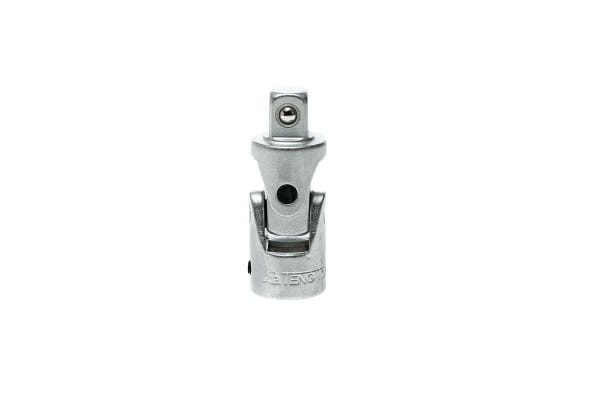Universal Joints
A universal joint is a mechanical joint used for connecting two shafts or rods whose axes are inclined at an angle to each other. The universal joint compensates for the angular misalignment and allows the shafts freedom of movement in any direction while transmitting rotary motion. The universal joint consists of a pair of hinges or fork shapes yokes oriented at 90° to one another and connected by a cross shaft. These joints are commonly used for connecting line shafts, drive shafts, conveyors and most types of rotating machinery to a prime mover. The universal joint is also known as a universal coupling, U-joint, cardon joint and hookes joint.Types of Universal JointSingle Joint: This has one bending point and can operate at angles of up to 45°. This type of joint can accept up to 25° operating angle misalignment between the two shafts or rods from the central section. This joint is suitable for use in slow speed applications.Double Joint: This has two bending points and can operate at angles of up to 90°. This type of joint can accept up to 0° to 45° operating angle misalignment between the two shafts or rods from the central section. The advantage of the double universal joint is that it can also compensate for parallel misalignment.Hub Styles Universal joints are available with four hub styles: Solid: these do not have a machined hole Bored: have a round, hex or square shaped hole Splined: these have longitudinal grooves inside the bore Keyed: these have keying to prevent the universal joint rotating on the shaft Bearing Types Universal joints are available with two types of bearings: Plain Bearings: these are suitable for low speed applications and can support shock loads, motion reversals, irregular running and high torques. Needle Roller Bearings: these are suitable for high rotational speeds, low torques and wide angles.The choice of universal joint material depends on the application they are going to be used in: Steel offers the ability to handle greater torque and temperature. Plastic offers rust corrosion and electrical and magnetic insulation. Universal joints can be used in a wide range of applications including drive shafts, automotive propeller shafts, centrifugal fans and centrifugal pumps, belt conveyors, control mechanisms, marine equipment and metal forming machinery.
-
Huco Universal Joint 105.20.3232, Single, Plain, Bore 10 x 10mm, 62mm Length
IDR458,159.52 -
Huco Universal Joint 111.16.3232, Double, Plain, Bore 10 x 10mm, 89.8mm Length
IDR766,116.56 -
RS PRO Universal Joint, Double, Plain, Bore 12mm, 86mm Length
IDR1,140,888.53 -
RS PRO Universal Joint, Double, Plain, Bore 20mm, 128mm Length
IDR1,813,338.32 -
RS PRO Universal Joint, Double, Plain, Bore 8mm, 62mm Length
IDR1,079,842.55 -
RS PRO Universal Joint, Single, Needle Roller, Bore 14mm, 60mm Length
IDR1,176,131.57 -
RS PRO Universal Joint, Single, Needle Roller, Bore 16mm, 68mm Length
IDR1,337,871.95 -
RS PRO Universal Joint, Single, Needle Roller, Bore 20mm, 82mm Length
IDR1,591,286.19 -
RS PRO Universal Joint, Single, Needle Roller, Bore 25mm, 108mm Length
IDR1,928,297.76 -
RS PRO Universal Joint, Single, Plain, 95mm Length
IDR804,086.74 -
RS PRO Universal Joint, Single, Plain, Bore 10mm, 48mm Length
IDR311,837.97 -
RS PRO Universal Joint, Single, Plain, Bore 10mm, 56mm Length
IDR564,832.65 -
RS PRO Universal Joint, Single, Plain, Bore 12mm, 56mm Length
IDR612,977.16 -
RS PRO Universal Joint, Single, Plain, Bore 12mm, 62mm Length
IDR612,977.16 -
RS PRO Universal Joint, Single, Plain, Bore 14mm, 60mm Length
IDR356,940.67 -
RS PRO Universal Joint, Single, Plain, Bore 16mm, 68mm Length
IDR377,604.00 -
RS PRO Universal Joint, Single, Plain, Bore 18mm, 74mm Length
IDR799,681.36 -
RS PRO Universal Joint, Single, Plain, Bore 20mm, 82mm Length
IDR994,671.87 -
RS PRO Universal Joint, Single, Plain, Bore 25mm, 108mm Length
IDR1,217,458.23 -
RS PRO Universal Joint, Single, Plain, Bore 8mm, 40mm Length
IDR620,214.57 -
Teng Tools Socket M380030-C, 20mm Length
IDR339,843.60





